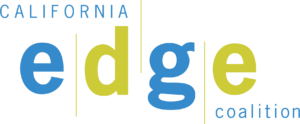On June 29th, Governor Gavin Newsom signed the 2020-21 State budget after months of discussions on how to leverage limited state resources to support all Californians and ensure the State’s most underserved communities are protected. The $202.1 billion budget largely avoids widespread cuts to public services to close the $54 billion deficit caused by the COVID-19 pandemic. The budget, which takes effect July 1st, maintains funding for K-12 schools, various workforce development programs, and safety net programs by using the State’s reserve funds, borrowing from special funds, delaying billions of dollars in payments until future years and temporarily limiting corporate tax credits to raise new revenue. While we see a lot of cuts spared to education and health care programs, the budget does include about $11.1 billion in cuts and deferrals, including state worker salaries, the University of California, the California State University, and several housing programs. Funding reductions and deferrals will be restored if at least $14 billion in federal funds are received by October 15. If the state receives a lesser amount, the reductions and deferrals will be partially restored. Highlights of the final budget include:
• Maintains student financial aid funding and shields the CalGrant program from any cuts.
• Maintains funding levels to the Strong Workforce Program for K-12 and Community Colleges.
• Increase of $5.8 million Prop 98 General Fund dollars to fund Dreamer Resource Liaisons and student support services for immigrant students, including undocumented students in community colleges.
• Maintains funding levels to categorical programs including career tech, after school, and adult education programs.
• Maintains $37 million General Fund dollars for the Adult Reentry Grant.
• Provides one-time funding of $15 million General Fund dollars to support emergency financial aid for undocumented students at UC, CSU and Community Colleges.
• Funding reduction of $5 million ongoing and a reduction of one-time $40 million to Calbright College.
• Approves one-time funding of $10 million General Fund dollars for the Social Entrepreneurs for Economic Development (SEED) Initiative to provide micro-grants and entrepreneurial training to immigrants.
• Increase of $38 billion to reflect the projected increase in unemployment insurance benefit payments.
• Approves a total of $100 million to support the IBank’s loan guarantee program that provides financial assistance to small businesses.
• Rejects the May Revise 10% trigger cuts to all childcare programs.
• Rejects the May Revision proposal to cut apportionment funding for community colleges.
• Withdraws the Governor’s budget proposal that would have funded work-based learning models and additional funding to apprenticeships.
• Provides $33.3 million ongoing General Fund dollars to support the Song-Brown Healthcare Workforce Training Program.
• Creates the California Student Loan & Debt Service Workgroup, which will identify strategies to ensure that prospective, current, and former student loan borrowers can access the most beneficial loan programs, repayment plans, and debt forgiveness options.
Overall, we acknowledge the difficult decisions that the Governor and Legislature had to make in order to ensure California’s underserved communities are protected. We know COVID-19 has exacerbated the affordability challenges faced by many low-income students and adult learners pursuing a post-secondary education and we are grateful to see that the budget makes a strong commitment to supporting those with greatest financial needs. During this unprecedented time where our nation is experiencing an ongoing pandemic and racial injustice, policymakers need to prioritize our state’s economic recovery strategies and equity policies by continuing to provide support services and expand educational training opportunities to the state’s most underserved populations.
The CA EDGE Coalition remains committed to elevating strategies to advance workforce development policy and economic mobility for all Californians. Moving forward, EDGE will remain actively engaged as budget and bill discussions continue leading up to the August 31st end of session deadline.
